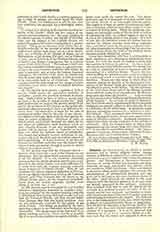

Definitor (in CANON LAW), an official in secular deaneries and in certain religious orders. Among regulars, a definitor is appointed as a counsellor of the provincial or general superior with certain determinate power. Dioceses are usually divided into deaneries, and these deaneries are again sub-divided into districts which are sometimes called definitiones. Over each district is placed an official styled definitor, who oversees the administration of ecclesiastical property and also gives aid to the dean in the more important duties of his office. Such definitors are elected by the rural chapters with the bishop’s approval, or in some cases are directly appointed by the ordinary. Anciently, their principal duty was to care for and divide the revenues of a prebend between the heirs of the deceased and the new occupant, and likewise to determine what proportion of income belonged to outgoing and incoming beneficiaries of a church. The definitor acts as the representative of the dean when the latter is absent or incapacitated by illness or irregularity. It is his duty to announce to the bishop, likewise, the death of the dean and conduct preparations for the election of a successor. It is to be observed that definitors are in no sense necessary officials of a diocese, and that the duties here assigned to them are sometimes fulfilled by others. In some decanal or rural chapters the title given to the definitor is chamberlain or treasurer.
WILLIAM H. W. FANNING

